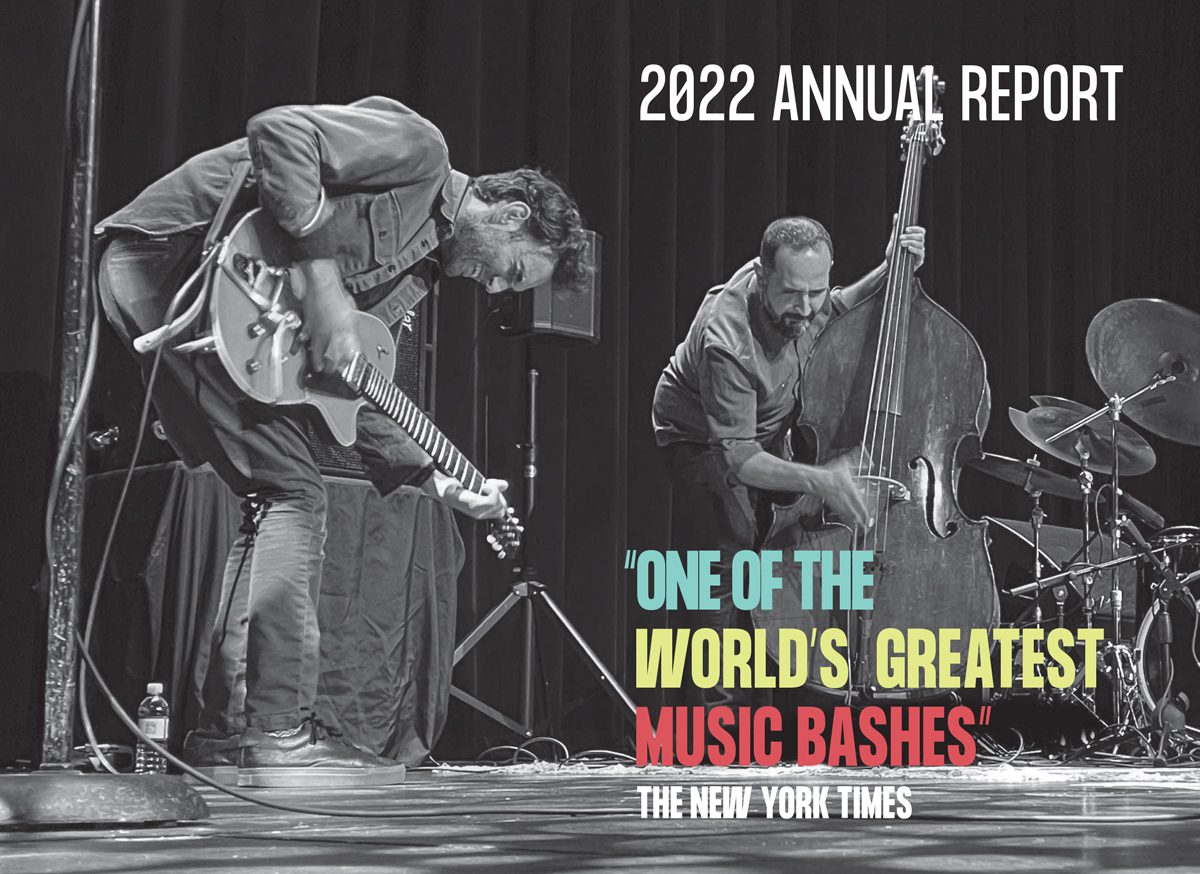The cross-cultural mission of Jerusalem in My Heart
For much of his life, Radwan Ghazi Moumneh has navigated the differences between two very different homelands. In the early ’90s, his family left Beirut amid the throes of the Lebanese civil war, decamping to Canada. Moumneh soon fell into Montreal’s realm of indie rock, both as a member of heavy rock bands and as a vital recording engineer in the city’s burgeoning underground. When his family returned to Lebanon, he remained in Canada, though he now takes extended annual sojourns to the Middle East to see relatives and explore his cultural heritage.
For nearly 15 years, these geographical and cultural polarities—and his attempt to bring his words together while recognizing what keeps them apart—have been the crux of his Jerusalem in My Heart. For the better part of a decade, he hesitated to document his pursuits, playing rare concerts rather than releasing a record. But in 2013, Jerusalem in My Heart issued Mo7it Al-Mo7it, a fascinating attempt to reposition the bustling musicality and blossoming melodies of traditional Middle Eastern sounds within the experimental impulses he shared with his Constellation labelmates back home. On a full-length collaboration with the shadowy rock band Suuns and 2015’s fascinating If He Dies, If If If If If If, he established a singular vision of cross-cultural translation.
But it’s his fourth album and first in three years, the incredible new about Daqa’iq Tudaiq, that states Moumneh’s mission with clarity and depth. This is a bifurcated album, with two sides that take up the same question with very different approaches: How do you pull orthodox Middle Eastern sounds across centuries and a continent? Moumneh begins with a cover of sorts. “Ya Garart Al Wadi” is a classic by Egyptian master Mohammed Abdel Wahab. In late 2017, Moumneh assembled a dozen-plus musicians in Beirut to record his four-part reinterpretation of the standard, with violins and buzuk flicking across and gliding through the melody as he sang. He adds subtle electronics, which put layers of static around or beneath the strings in a way that suggests the signal is failing, that the system on which he is depending is slowly collapsing. The recording is immersive, the effect disconcerting, as if you’re always on the edge of some great void.
For the second side, though, Moumneh plunges straight into that abyss, wrestling with traditional Middle Eastern instruments and modern electronics in the same battle royale. With shuffling drums, chirping circuits, and buzuk melodies that are clipped and looped like the basis of a Four Tet track, “Bein Ithnein” winks toward dance floors on both sides of the Atlantic. During “Thahab, Mish Roujou’, Thahab,” he cycles his voice through processors and pedals as if he were a robot delivering a monologue. Foreboding and fractured, it keeps you at a safe distance, a security fence around his voice. As inviting as the first half of Daqa’iq Tudaiq can sometimes feel, its flip side is a cold stare that makes you question your assumptions about facile cross-cultural intersections. Moumneh wants you to dig deeper.
In that sense, Daqa’iq Tudaiq is a prime album for Constellation, a label that has been artfully asking audiences to consider the crossroads of politics, culture, and social systems for two decades. Godspeed You! Black Emperor, Matana Roberts, Ought: They have all demanded a different lens for this world, a different approach for familiar issues. Daqa’iq Tudaiq is a musical semaphore, then, pointing you to new modes of cultural contemplation.




